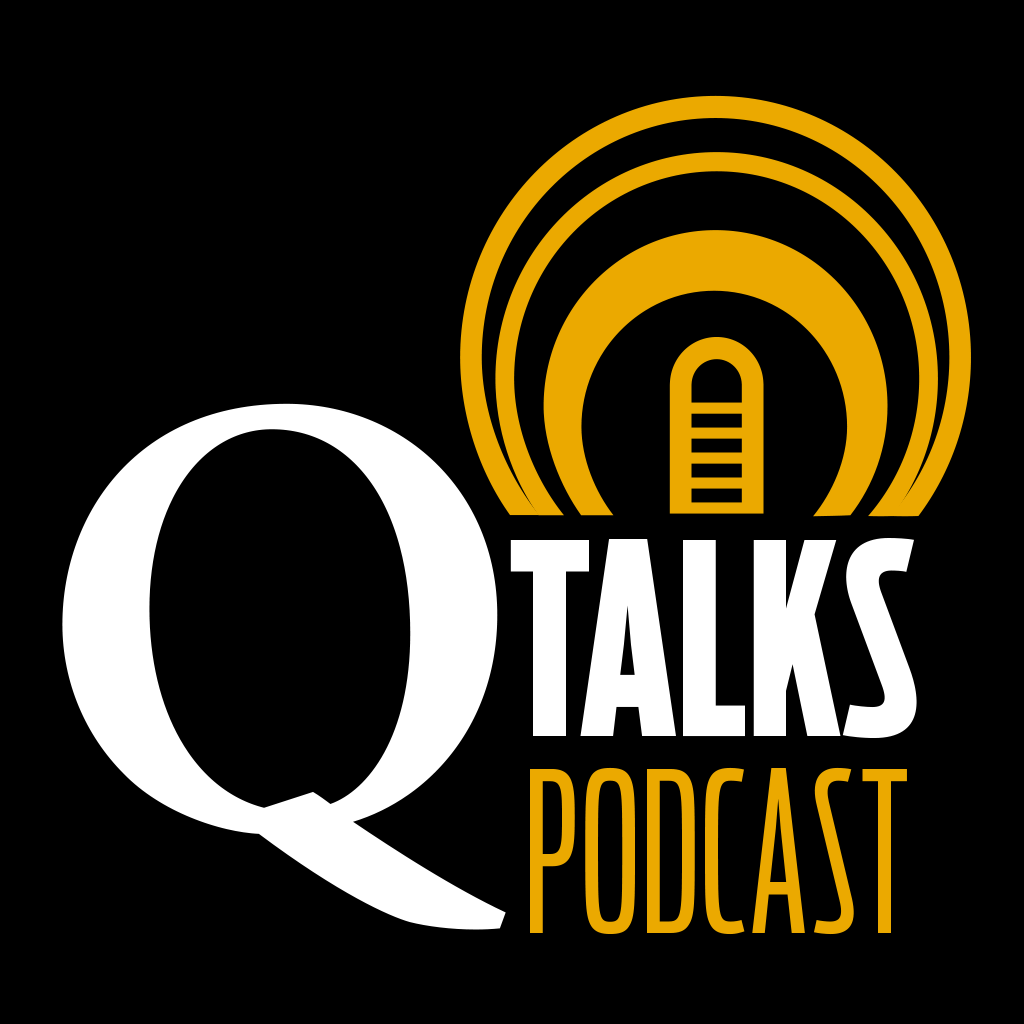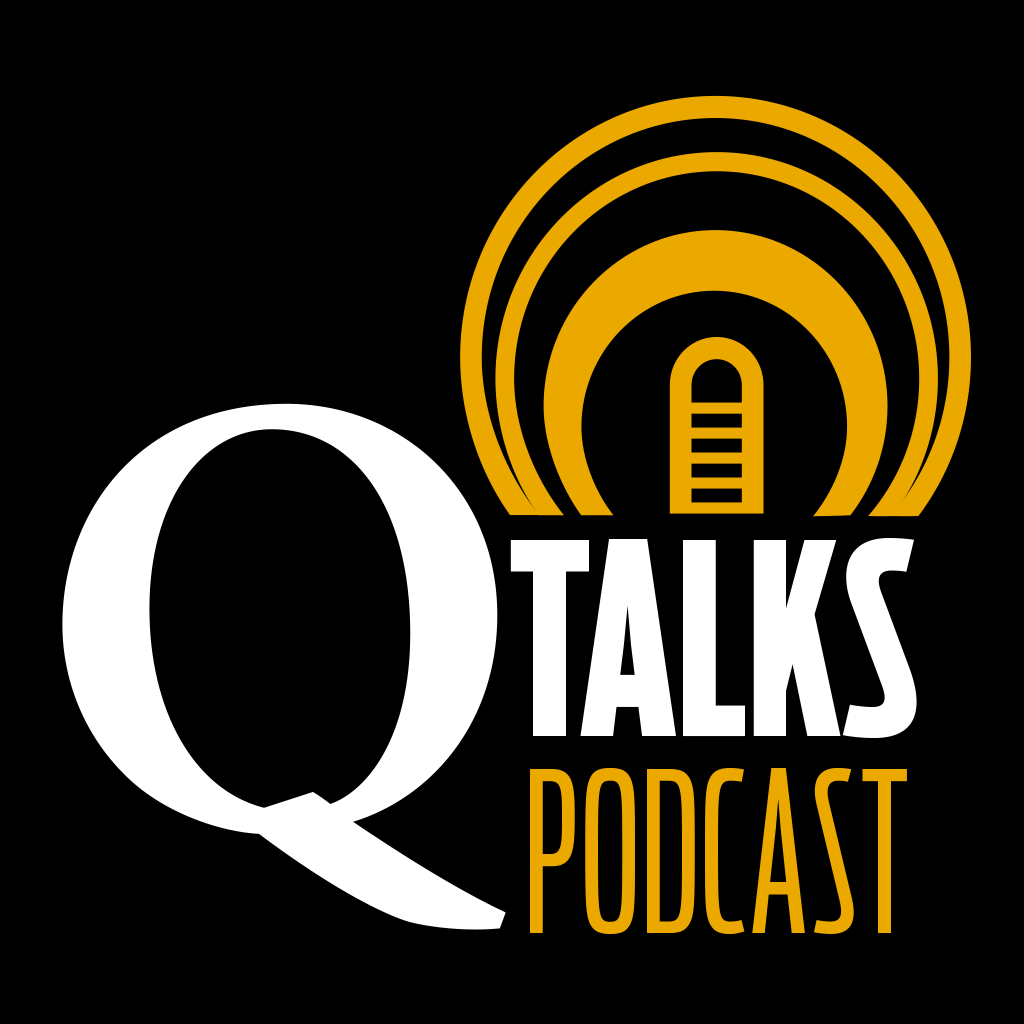Discover Q Talks: Podcast
Q Talks: Podcast

Q Talks: Podcast
Author: Quinlan School of Business, Loyola University Chicago
Subscribed: 4Played: 169Subscribe
Share
© (c) 2019
Description
Join us for a discussion of the defining business issues of our time – all through a Jesuit, values-based perspective. The bi-weekly podcast is produced by the Quinlan School of Business at Loyola University Chicago.
69 Episodes
Reverse
Robert Arias, PhD, helps us explore the different ways consumers behave towards the goods they own and what motivates these differences to shed light on the acts of consumption.
Listen in as Professor Abe Singer and colleague Hayley Clatterbuck attempt to rescue devil's advocacy from its deservedly bad reputation. We aim to show why, notwithstanding the many instances in which it is misused, "playing devil's advocate" is still very useful for our collective social understanding and enlightenment.
Lecturer Zach Binkley explains what an NFT is, how they are used, and the enjoyment he gets from the gamification of how they are implemented.
In October of 2021, Al Gorman, chairman of Power Construction and Interim Dean Maciek Nowak sat down to talk about how we build the modern skyscrapers and reflect on some noteworthy projects he has overseen during his career.
Professor of Management Anne Reilly shares with us her expertise in organizational change management as she reflects on what the future might hold. The bottom line is that change is hard and in our conversation Anne offers a few suggestions for coping with and facilitating the changes that may be necessary moving forward.
Can we mobilize against other societal threats in the same way we have and continue to do with COVID-19? Emily Nordquist of the Baumhart Center joins us to talk about how she hopes we are able to harness our abilities to facilitate nimble change against the other pressing issues of our time.
Professor Jennifer Griffin joins us to talk about the many ways she has seen technology intervene during the pandemic and what she hopes will stay as we move forward.
Professor Peter Norlander views the pandemic as a dramatic and unifying event and explains how he uses the Great Depression as a framework for understanding how our future may unfold.
Leveraging his training as a political scientist, Assistant Professor Abraham Singer share his observations on the current state of public discourse and how we engage with it.
Paying attention to other pre-existing epidemics such as the opioid crisis and suicide rates within the United States, Associate Dean Tim Classen speaks to the trends in these concurrent epidemics and what their consequences may be.
Observing parallels between the Plague of Athens and our current moment, Eve Geroulis expounds upon learning from history and finding clarity in our values during times of upheaval.
Believing markets are able to pivot more nimbly than other institutions, Interim Dean Maciek Nowak reflects on how he hopes businesses and business schools will rise to provide solutions to our society's most pressing problems.
Cedric Dawkins, Chair of the Management Department at Quinlan joins the podcast to share his recent ponderings and investigation into our notions of merit and how they should be applied.
On April 1st, Annie Dufalo, executive director of Innovation for Poverty Action was hosted by Seth Green and Abol Jalilvand for a conversation on global poverty and wealth inequality. We hope you enjoy these excerpts from the program.
Associate Professor of Finance Swasti Gupta-Mukherjee explains the disparate impact Climate Change is having on those in poverty, outlines ideas for changing incentives to inspire action, and makes an argument for why we need to pull the “E” out from “ESG.”
Assistant Professor of Economics Joel Han elaborates on how where an individual grows up impacts their social and economic mobility as they grow older. Listeners interested in diving deeper should check out the Opportunity Atlas Project at https://www.opportunityatlas.org
Senior Lecturer Eve Geroulis and Associate Director Rick Sindt are joined by Margaret Mueller, president and CEO of the Chicago Executives’ Club to talk about how Chicago is experiencing the K-shaped recovery from the pandemic and what the city and businesses can do to mitigate its impact.
Familial wealth is now the leading indicator of youth sports participation. Clinical Lecturer, Zachary Binkley joins us to talk about barriers to entry and the impact this is having on individuals and communities.
Jason Wild, senior vice president of transformation and innovation at Salesforce, lays out why he thinks a transition to Stakeholder Capitalism–from our current Shareholder Capitalist model–is required and how that intertwines with his position and the mission of Salesforce.
Tassos Malliaris, Walter F. Mullady senior professor and chair of economics department at Quinlan, discusses the impact monetary policy can have on income inequality in the United States in this first episode of our series on Wealth Inequality. Sharing his thoughts on the Federal Reserve's recent policy shift from prioritizing mitigating inflation to mitigating unemployment, political power, and universal basic income programs.
























